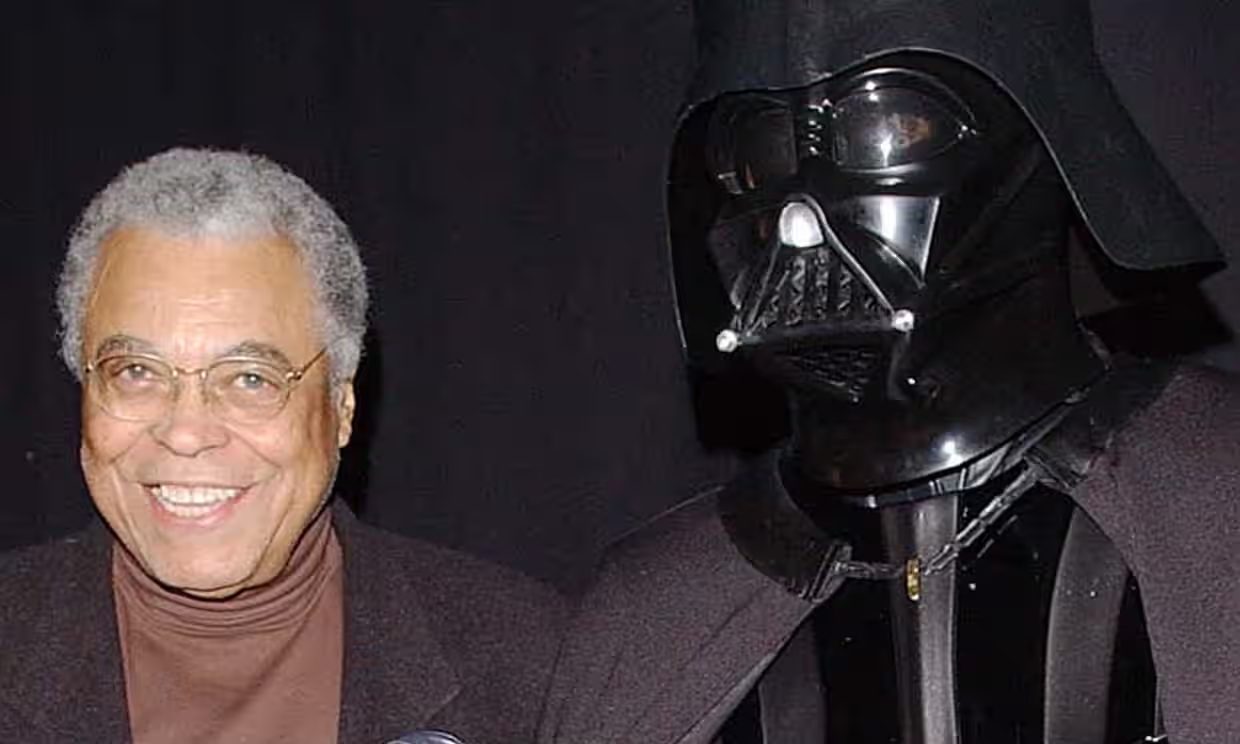James Earl Jones, renowned for his commanding voice and a trailblazing career spanning over seven decades, passed away on September 9, 2024, at the age of 93. Known to many as the voice of Darth Vader in Star Wars and Mufasa in The Lion King, Jones left a lasting impact on stage, film, and television, becoming one of the most respected actors of his generation.
In 2011, during the run of the revival of Driving Miss Daisy in London, where he starred alongside Vanessa Redgrave, Jones was honored with an honorary Oscar. The ceremony connected the Wyndham’s Theatre in London to the Oscars in Hollywood, with Sir Ben Kingsley presenting the award. Glenn Close, speaking from Los Angeles, praised Jones for embodying the “essence of truly great acting,” while Kingsley highlighted his “1,000-kilowatt smile” and his legendary basso profundo voice.
Born on January 17, 1931, in Arkabutla, Mississippi, James Earl Jones faced significant challenges from an early age. The son of Robert Earl Jones, an actor and boxer, and Ruth Connolly, a teacher, he was raised on a farm in Michigan by his maternal grandparents after his father left the family. Growing up, Jones struggled with a debilitating stutter, a condition he overcame through poetry recitals in school.
After graduating from the University of Michigan, Jones served as a U.S. Army Ranger during the Korean War. Following his service, he began his acting career at the Ramsdell Theatre in Michigan, where he first took on the role of Othello in 1955. This marked the beginning of a career defined by his deep voice, commanding presence, and an ability to portray characters with immense depth and complexity.
Jones’ breakthrough came in 1969 when he won a Tony Award for his portrayal of boxer Jack Jefferson in Howard Sackler’s The Great White Hope. He reprised the role in the 1970 film adaptation, earning an Academy Award nomination for Best Actor. This performance, exploring themes of race and resilience, solidified his position as a leading Black actor in American theater and cinema.
His versatility shone as he tackled roles from the classics of Shakespeare to contemporary drama. On stage, he took on challenging parts, including King Lear, Othello, and Hickey in Eugene O’Neill’s The Iceman Cometh. His portrayal of Big Daddy in Cat on a Hot Tin Roof and Troy Maxson in August Wilson’s Fences showcased his ability to embody larger-than-life characters weighed down by the pressures of race, family, and history.
In addition to his prolific stage career, Jones made a significant mark on film. He portrayed the fictional first Black U.S. president in the 1972 film The Man and appeared in Stanley Kubrick’s Dr. Strangelove (1964). But it was his work as a voice actor that brought him unparalleled global recognition. His voice became iconic as the villainous Darth Vader in Star Wars, Mufasa in The Lion King, and the authoritative announcer of CNN’s “This is CNN.”
Jones never shied away from roles or performances that challenged societal norms, often championing works that addressed issues of race and inequality. He played Paul Robeson, a Black American singer and civil rights activist, on Broadway in 1977, earning both praise and controversy. His work in Fences, depicting the struggles of a Black garbage collector denied the opportunity to play professional baseball due to racial barriers, remains one of his most significant and powerful performances.
In his later years, Jones continued to grace the stage and screen. He appeared in a Broadway revival of On Golden Pond in 2005, opposite Leslie Uggams, and took on the role of Big Daddy in Cat on a Hot Tin Roof in London in 2009. His enduring collaboration with Vanessa Redgrave, including a heartfelt portrayal in Driving Miss Daisy, revealed his ability to navigate roles exploring race, identity, and human connection with sensitivity and grace.
James Earl Jones’ contributions to the arts were celebrated throughout his lifetime. He received a lifetime achievement Tony Award in 2017, and in 2022, the Cort Theatre in New York was renamed in his honor. He also received numerous accolades for his work in film, theater, and voice acting, including an Emmy, a Grammy, and two Tony Awards.
Jones was married twice, first to actress Julienne Marie and later to actress Cecilia Hart, with whom he had a son, Flynn, who followed in his father’s footsteps as an actor. Jones is survived by Flynn and his brother, Matthew.
James Earl Jones leaves behind a towering legacy as an actor, voice artist, and advocate for racial equality in the arts. His career, marked by powerful performances and a voice that resonated across generations, will continue to inspire actors and audiences for years to come.
James Earl Jones, actor, born January 17, 1931; died September 9, 2024.
